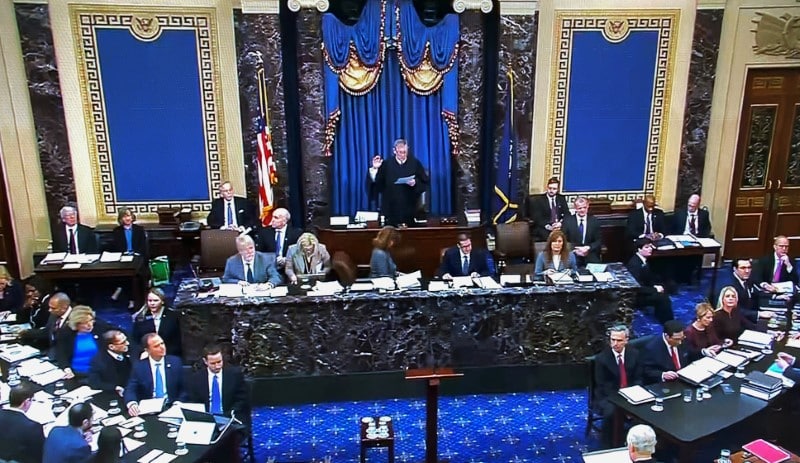U.S. President Donald Trump’s impeachment trial began in earnest in the Senate on Tuesday in a rare use of the constitutional mechanism for ousting a president that has further polarized voters ahead of a November election.
Democrats have called on the Republican-controlled Senate to remove Trump from office for pressuring Ukraine to investigate former Vice President Joe Biden, a political rival, and then obstructing the inquiry into the scandal.
Trump, who was impeached last month by the Democratic-led House of Representatives on charges of abusing power and obstructing Congress, says he has done nothing wrong and describes his impeachment as a partisan hoax to derail his 2020 re-election.
With the television cameras rolling, U.S. Supreme Court Chief Justice John Roberts convened the proceedings.
Votes on the trial rules could take place as early as Tuesday. This would include deciding whether the Senate should at a later date consider subpoenas for witnesses, such as Trump’s former national security adviser John Bolton.
Speaking on the Senate floor ahead of the proceedings on Tuesday, Senate Majority Leader Mitch McConnell said he would set aside any Democratic amendments to subpoena witnesses and documents at the start of the trial.
Earlier on Tuesday, Democrats accused McConnell of trying to rig a trial with proposed rules that they said would prevent witnesses from testifying and bar evidence gathered by investigators.
McConnell unveiled a plan on Monday that would execute a potentially quick trial without new testimony or evidence, and give House Democratic prosecutors and Trump lawyers 48 hours, evenly split, to present their arguments over four days.
Opening arguments are expected to begin this week and may well run late each night. With a two-thirds majority needed in the 100-member Senate to remove Trump from office, he is almost certain to be acquitted by fellow Republicans in the chamber.
But the impact of the trial on his re-election bid is far from clear.
(Reporting by Will Dunham, Richard Cowan, Doina Chiacu, Patricia Zengerle, David Morgan, Jan Wolfe, Susan Cornwell, Susan Heavey, Karen Freifeld, Lisa Lambert and Tim Ahmann in Washington; Writing by Will Dunham and Paul Simao; Editing by Howard Goller)

























 Continue with Google
Continue with Google